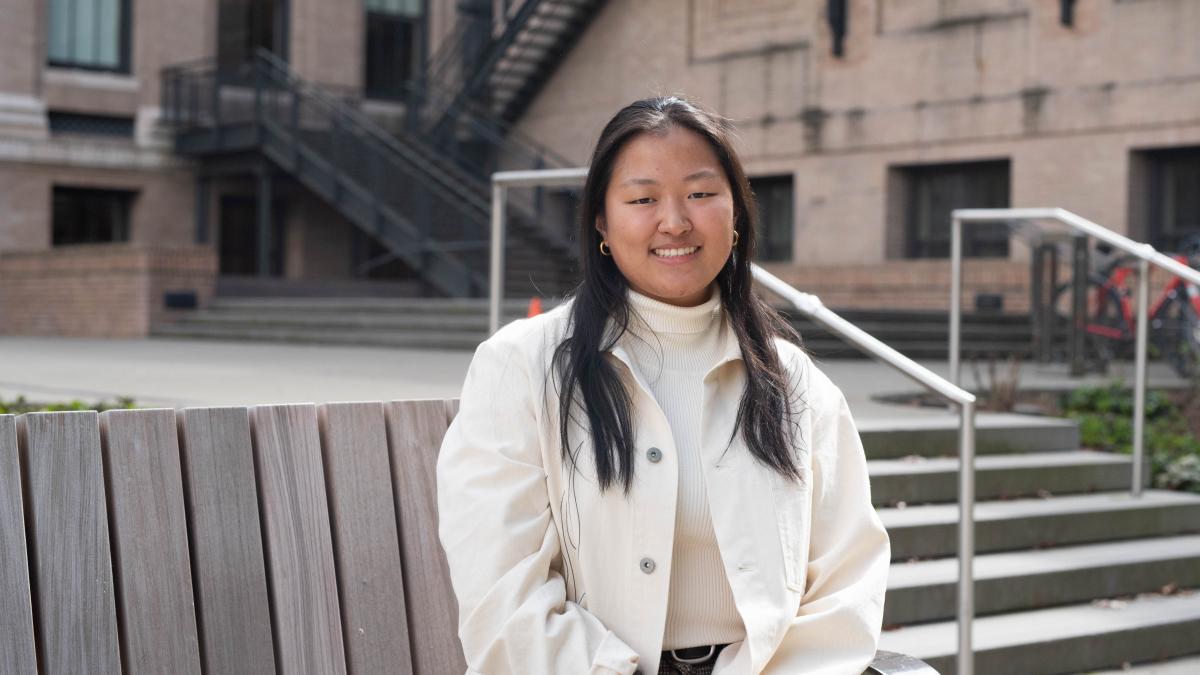
Last summer’s extreme heat event in the Pacific Northwest affirmed University of Washington student Juliette Randazza’s decision to pursue dual master’s degrees in environmental health and public policy. We caught up with her to learn more about her environmental policy research, why she joined CHanGE as a student member and how she hopes to continue this work after graduating this June.
Q: Tell us about your research area and what drew you to this topic.
My main research focus is on strategies that local health departments and emergency management agencies can take to manage the impacts of extreme heat. By local, I primarily mean the city and county levels. Practically, this focus makes sense since my background is in clinical quality analysis and I was always interested in the policy implications of this work. Additionally, as a dual degree student, I was looking for research opportunities to combine these two fields.
Personally, there have been several experiences that have cemented the importance of this topic in my mind. The first was growing up in the Northeast, experiencing increasingly hot and humid summers without air conditioning. Just ten years have radically changed how bearable heatwaves feel in the summer.
Now in the Pacific Northwest, not having air conditioning is considered a health risk. During last summer’s extreme heat event, I had a friend who passed out at his desk from overheating and another who was scrambling to keep their pets cool. These experiences really hammered in the human aspect of this work. People are directly impacted by policies. I want to know: What are the services and infrastructure that cities and counties have to fund and implement based on these changes?
Q: How did you get involved with CHanGE, and what projects are you currently working on with this group?
I was really lucky to work as a research assistant for Nicole Errett during my first year. Nicole’s research focuses on the health impacts of climate change and other environmental policy, and I was assigned to a project on extreme heat responses.
My current thesis project evolved out of that experience. This project is part of a larger collaboration between Professor Errett and CHanGE’s director, Dr. Jeremy Hess, and researchers at Boston University and the University of British Columbia, who are investigating the health impacts of extreme heat events in the United States.
Most of my work has been focused on analyzing local heat action plans and surveying local health departments and emergency management agencies on their extreme heat management strategies. We are currently preparing for key informant interviews with practitioners to elaborate on the responses we received from the surveys.
Q: Who is your intended audience for this research (who do you hope reads it), and why is it a timely/important topic?
My intended audience is primarily departments of public health, emergency management agencies and policymakers. Local governments are currently planning for hotter summers, and this information could help them understand which strategies are more effective in terms of protecting community health.
For example, I recently read a news article that featured a person over the age of 65 living alone -- two risk factors, by the way -- in a New York City apartment, without air conditioning. He knew about a city program for free air conditioning but didn’t know how to access it. So can we say that this policy implementation was successful? These are the kinds of questions I hope to raise and answer with this audience.
Q: What is important to you about being a member of CHanGE?
I’m in a seminar this quarter called The Theory and Practice of Linking Knowledge with Action to Address Modern Environmental Challenges. One thing we’ve talked about is the importance of boundary organizations to foster relationships between the research community, practitioners and decision-makers, which creates an exchange of information and knowledge production. It’s important for me to see this in action through the formal and informal connections that CHanGE offers to its members.
Q: What are your future plans? What’s next for your research?
While I was working on my proposal, I remember writing that the results of this work would be hypothesis-generating, and so now I’m thinking about who this work needs to reach to focus on the next steps of application. Specifically, I’ve been thinking about how these public strategies can be tailored to work for different communities. For example, some jurisdictions may have more robust and evenly distributed transportation systems, so accessing services may be easier. Other jurisdictions may not have as robust a system and will have to provide direct transportation to services. I think this is hard to capture from analyzing the heat action plans and, in that case, further evaluation of these strategies would really require the exchange of knowledge between researchers, practitioners and community members.
I graduate in June and I’m hoping to stay in the Seattle area or in Washington state and enter public service at the local or state level. I’m interested in agencies that work on environmental policy and management as well as incorporating the ways that decisions made at these agencies impact health.
